A desert symbolizes loneliness, abandonment, isolation, hardship, and loss.
The desert is also often associated with rebirth, as it is a place where life finds a way to survive despite harsh conditions.
In religious texts, the desert is often used as a metaphor for the trials of life, and it is seen as a place of testing for those who wish to follow God.
For many people, a desert is a place of both challenge and growth, and it holds a deep spiritual significance.
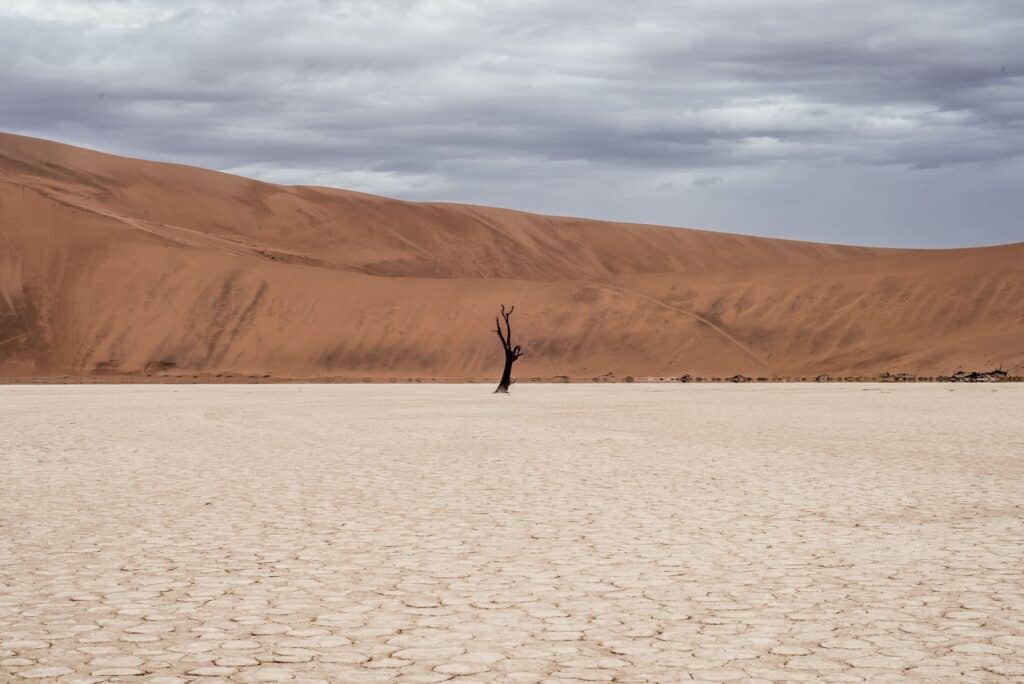
Quick Overview: Desert Symbolism Meaning
- Loneliness
- Abandonment
- Isolation
- Purgatory
- Desolation
- Hardship
- Death
- Exhaustion
- Lost
- Hopelessness
- Wasteland
- Aridity
- Parched
13 Desert Symbolisms
1. Loneliness
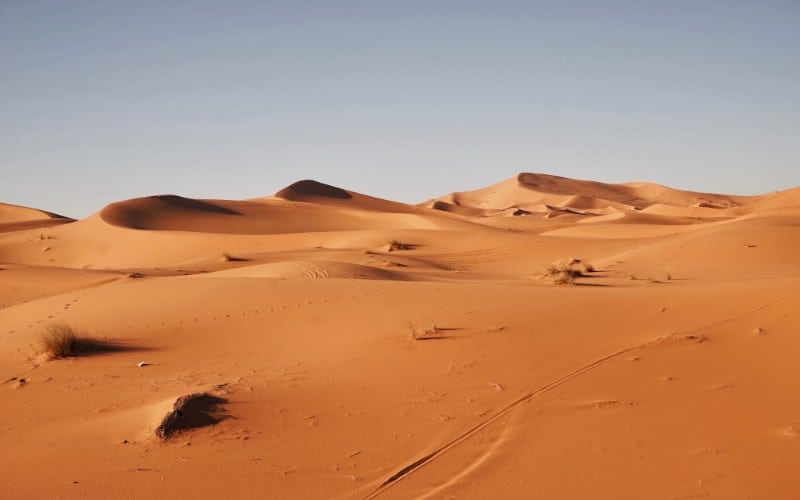
A desert can symbolize loneliness because it is an isolated, barren place. In a desert, there is no life and no color.
The only thing that exists is the hot sun and the sand. This can represent how someone feels when they are lonely. They feel isolated and alone. There is no one to talk to and no one to connect with.
Read More: Hammer Symbolism
All they can see is their own emptiness. A desert can also symbolize despair. When someone is in a desert, they are in a place where there is no hope.
They may feel like they will never find their way out or that they will never find anything to quench their thirst. The heat of the sun can represent the intensity of their emotions and the sand can represent how hopeless they feel.
2. Abandonment
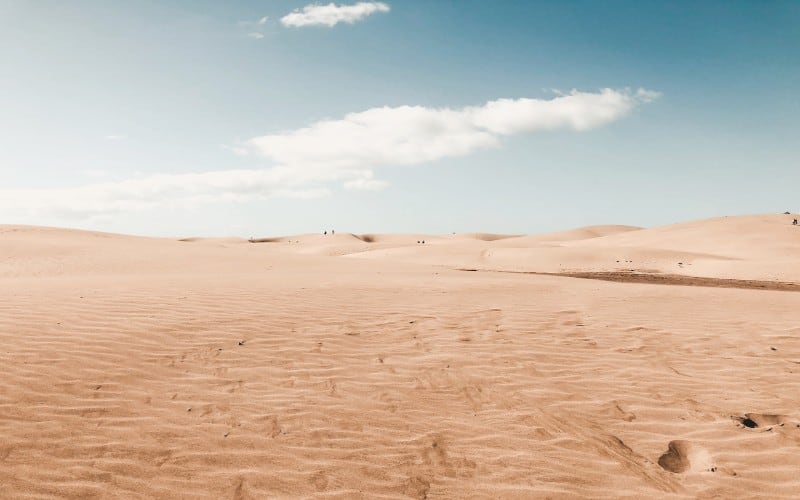
The desert is a harsh and unforgiving environment. It is a place where life is forced to struggle to survive. For many people, the desert is a symbol of abandonment.
It is a place where dreams go to die. A desert is a place of desolation, where even the most determined individuals can quickly become lost and alone.
In the desert, there is no escape from the relentless sun or from the deadly creatures that lurk in the shadows.
For these reasons, the desert has come to symbolize abandonment, despair, and hopelessness.
3. Isolation
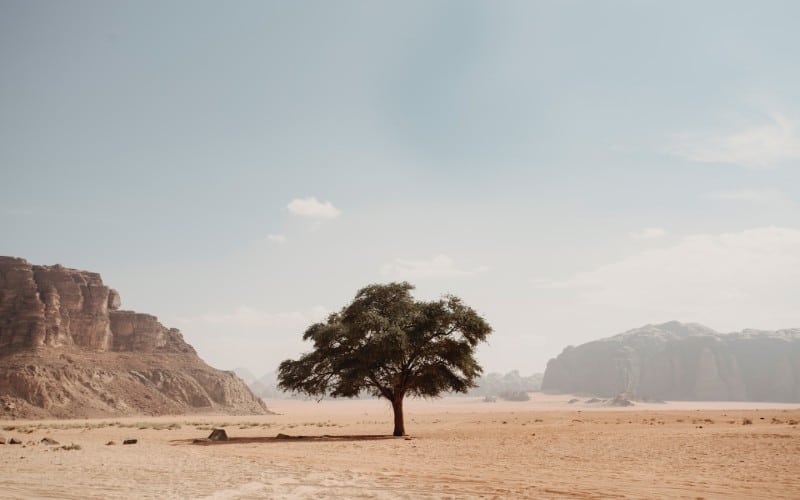
The desert has long been seen as a symbol of isolation.
In part, this is because of the physical distances that can separate people in a desert landscape. But the desert also represents a psychological state of mind, where feelings of loneliness and alienation can be magnified.
For many people, the desert is a place to escape from the hustle and bustle of everyday life. It’s a place to find peace and quiet, and to reflect on the larger questions of life.
In this way, the desert can be seen as a metaphor for our own journey through life, where we sometimes need to step away from the noise and confusion in order to find our true selves.
4. Purgatory
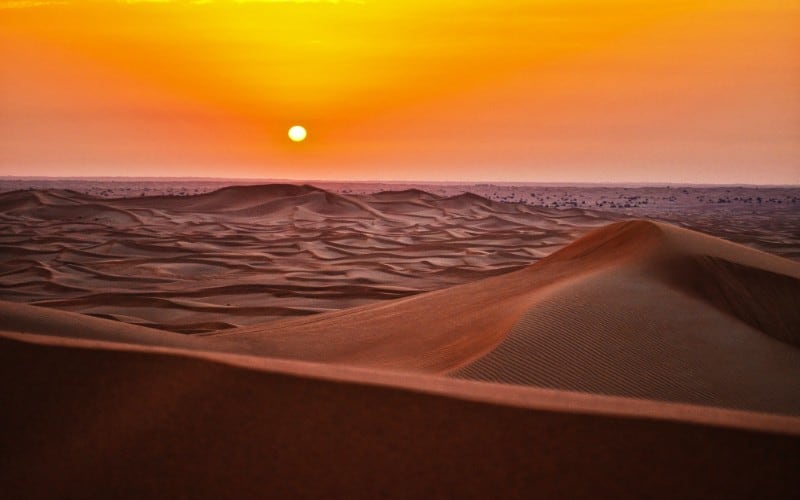
A desert is an arid, lifeless place where it is difficult to find food or water. In many ways, it is an apt symbol for purgatory, the realm in which souls are cleansed of their sins.
Like a desert, Purgatory is a barren place where those who are trapped there must endure great suffering. However, there is also the hope of escape from both deserts.
In a physical desert, one can find relief by reaching an oasis; in Purgatory, souls can be freed by the prayers of the living.
Thus, the desert serves as a powerful reminder of the transitory nature of life and the importance of seeking forgiveness for one’s sins.
5. Desolation
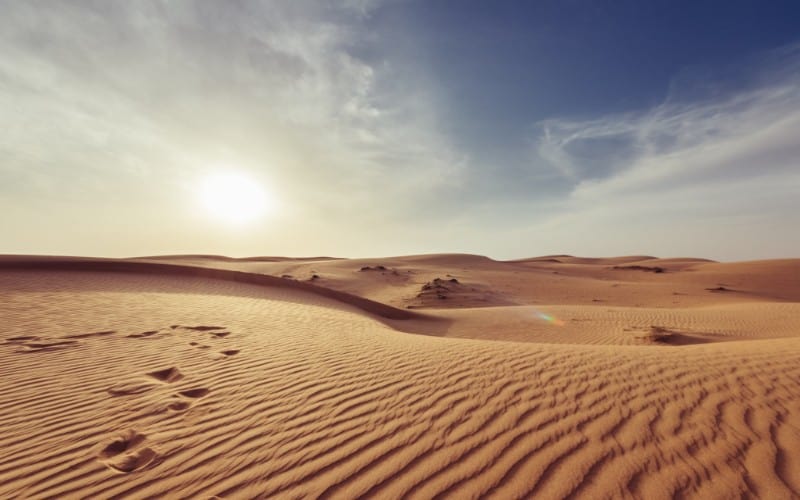
A desert typically symbolizes desolation because it is an environment in which it is difficult to find food and water.
The arid conditions can also make it difficult to find shelter. In addition, deserts are often remote and isolated, making them seem like inhospitable places.
All of these factors combine to create a feeling of desolation. For many people, a desert is a place of despair and hopelessness.
All of these factors contribute to the idea of a desert as a place of desolation.
6. Hardship
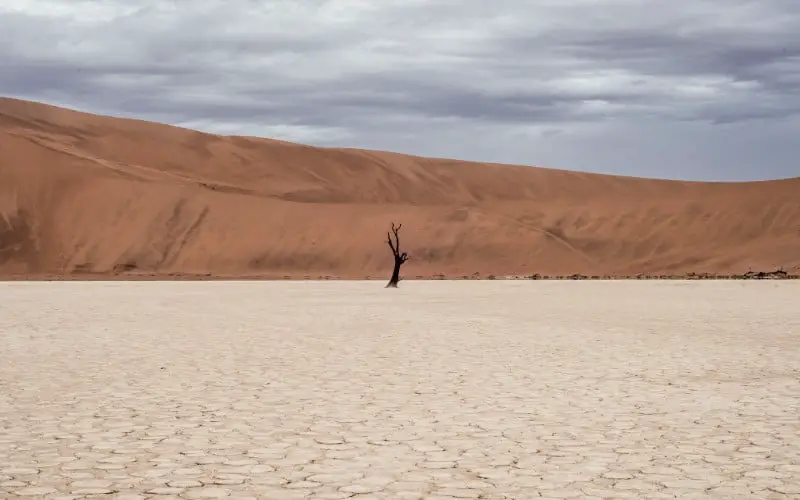
A desert generally symbolizes hardship, because it is an environment that is extremely difficult to live in.
The lack of water and extreme temperatures make it a hostile place for most plants and animals. For people, the lack of resources can make it hard to survive.
Deserts are often seen as places of deprivation, where life is a struggle. In many ways, this is an accurate portrayal. However, deserts can also be beautiful and full of life.
They are home to some of the world’s most unique plants and animals, and they offer stunning views. For those who are willing to embrace the challenge, deserts can be amazing places to live.
7. Death
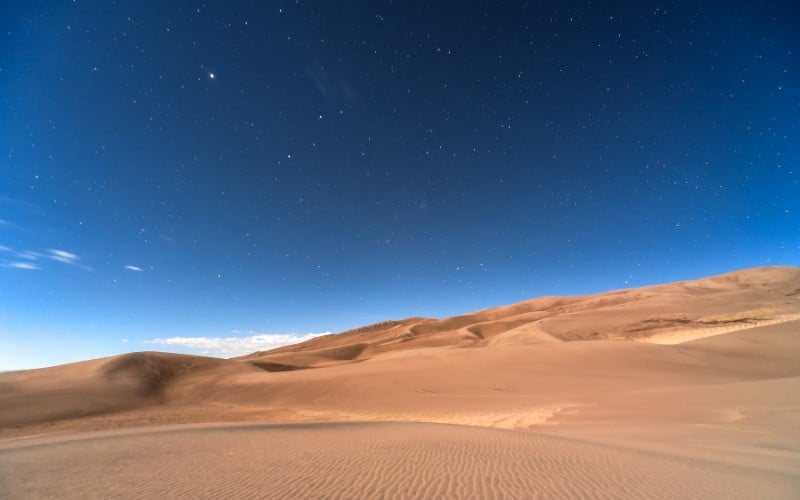
A desert is often seen as a symbol of death, due to its barren landscape and lack of water.
In many cultures, the desert is associated with harsh conditions and danger, as it can be a very hostile environment.
In the Bible, the desert is often used as a metaphor for suffering and hardship, as it was seen as a place where people would go to die.
The harsh conditions of the desert also make it difficult for life to thrive, which can represent the end of life. For these reasons, the desert has come to symbolize death in many cultures.
8. Exhaustion
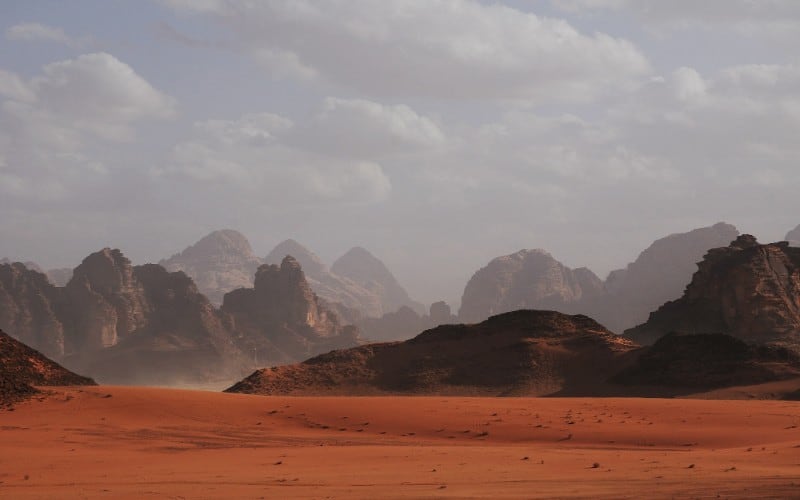
For many people, deserts symbolize exhaustion due to the harsh conditions that they represent.
However, deserts can also be beautiful places, with their wide open spaces and bright, sunny skies. In addition, deserts are home to a variety of unique plants and animals that have adapted to harsh conditions.
For those who are willing to embrace the challenge, deserts can be amazing places to live. However, those who are not prepared, they can be a place of great hardship.
For these reasons, deserts can be seen as both exhausting and intriguing places.
9. Lost
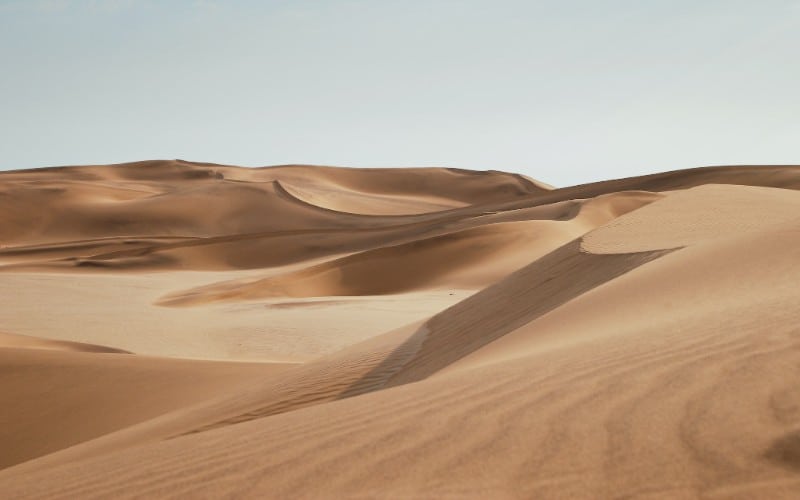
A desert is a landscape that has very little rainfall and is typically hot and dry. It’s no wonder, then, that the desert has come to symbolize lost hope and opportunity.
In literature, the desert often represents a bleak and unforgiving place, where characters must confront their fears and challenges head-on. This is certainly the case in Cormac McCarthy’s post-apocalyptic novel The Road, in which a father and son must cross a barren wasteland in order to find safety.
The desert is also a popular setting for Westerners, where its vastness emphasizes the isolation of the protagonists.
Whether it’s used as a literal or metaphorical landscape, the desert provides a unique and evocative backdrop for stories of loss, courage, and determination.
10. Hopelessness
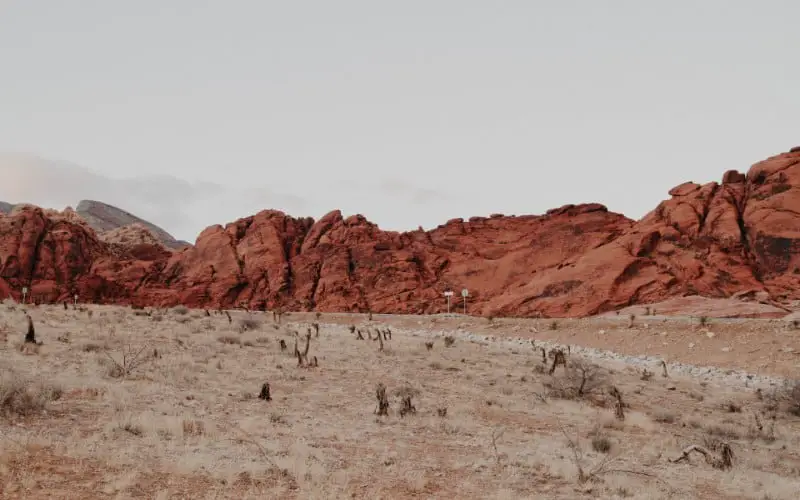
Deserts are often seen as hostile and unforgiving environments, where conditions are extreme and resources are scarce. This image is reflected in the way that deserts are often used as symbols of hopelessness and despair.
In literature, deserts often represent a journey into the unknown, where characters must face their fears and grapple with difficult choices
In films, deserts often serve as the backdrop for stories of loss and isolation, where characters must confront their deepest emotions.
Even in everyday conversation, we often use desert metaphors to describe situations that feel hopeless or overwhelming. Ultimately, the desert symbolizes our own capacity for endurance and hope, even in the face of adversity.
11. Wasteland
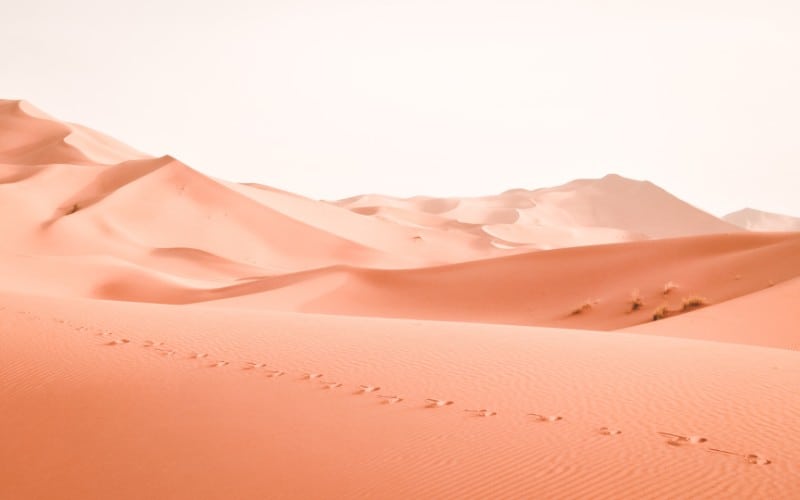
A desert typically symbolizes a wasteland because it is an environment that is inhospitable to life.
Deserts are characterized by extreme temperatures, lack of water, and poor soil quality. These conditions make it difficult for plants and animals to survive.
In addition, deserts often have little or no vegetation, which can create a sense of loneliness and isolation.
For these reasons, deserts are often seen as places of desolation and despair.
12. Aridity
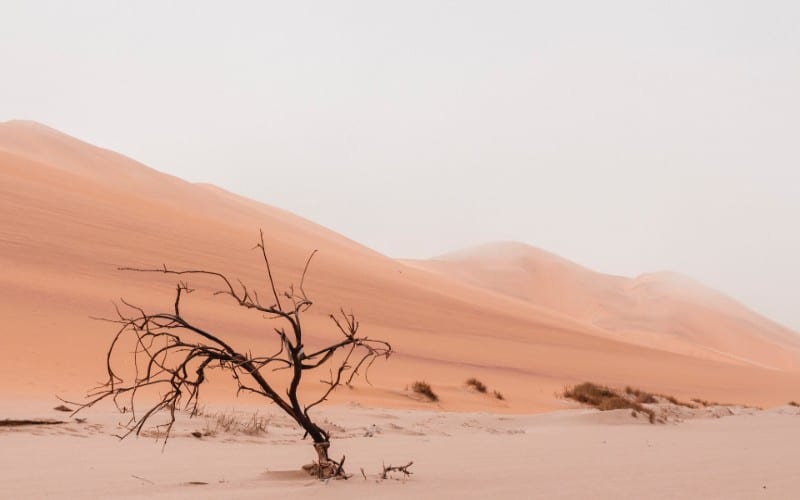
A desert symbolizes aridity because it is an area of land that receives very little rainfall.
This lack of moisture means that deserts are often home to plants and animals that have adapted to living in dry conditions. For example, many cacti are able to store water in their leaves, allowing them to survive for long periods without rain.
However, not all desert regions are equally arid. Some, like the Sahara Desert, receive very little rainfall each year, while others, like the Sonoran Desert in the southwestern United States, experience significant amounts of rainfall during the rainy season.
As a result, the level of aridity in a desert can vary depending on its location.
13. Parched
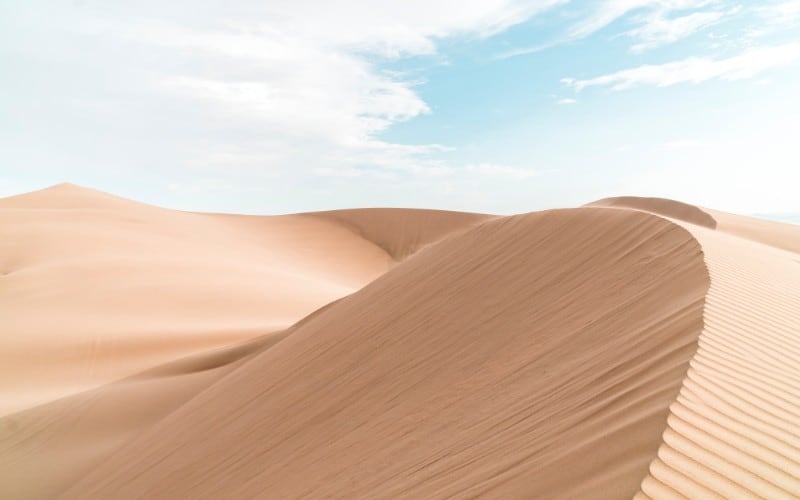
In such a hostile environment, it is easy to see why the desert might be seen as a symbol of parched land.
And yet, for all its dangers, the desert can also be a place of great beauty. In the right light, the sand can take on a range of colors, from deep oranges to fiery reds.
The desert can be a place of peace and solitude, where one can appreciate the simple things in life.
In this way, the desert may also symbolize a place of renewal and hope.
Desert Spiritual Meaning
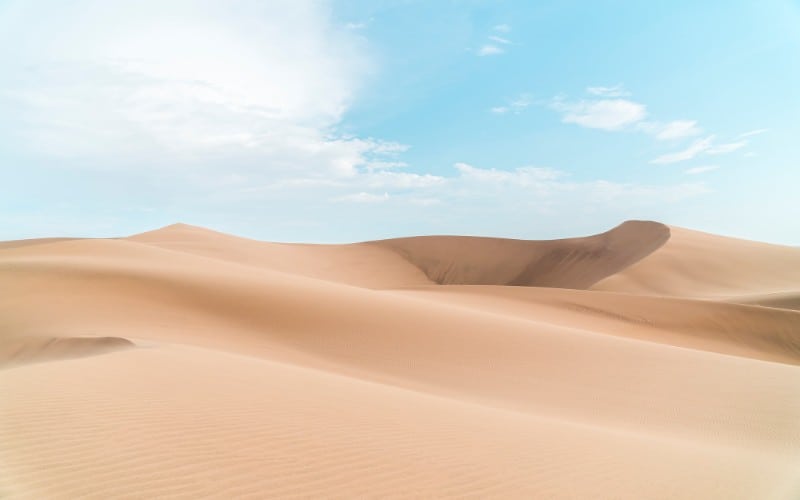
The desert has always been a place of refuge and contemplation, a space for the mind to wander and the soul to find peace. For many, a desert is a place of spiritual significance, a sacred space where one can commune with the natural world and connect with the divine.
There are many different ways to find meaning in the desert, but all involve deep respect for the land and its inhabitants.
Whether it is through simply spending time in silence or engaging in more traditional ceremonies, the desert can offer a connection to something larger than ourselves.
In recent years, there has been a resurgence of interest in desert spirituality, as more and more people seek out its unique form of solace. As our world becomes increasingly chaotic, the desert offers a reminder of the peace that lies within us all.
Conclusion
The desert is a symbol of our capacity for endurance and hope. It is a place of great beauty, but also great danger. The desert has always been a place of refuge and contemplation, a space for the mind to wander and the soul to find peace. For many, a desert is a place of spiritual significance, a sacred space where one can commune with the natural world and connect with the divine. Whether it is through simply spending time in silence or engaging in more traditional ceremonies, the desert can offer a connection to something larger than ourselves.
